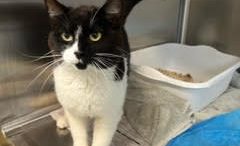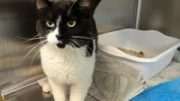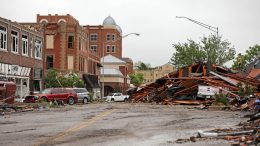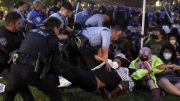HARRISBURG (AP) — The administration of Gov. Tom Wolf on Monday backed off its demand that nursing homes test all residents and staff for the new coronavirus weekly, instead ordering them to complete a single baseline test.
Wolf had vowed last month that weekly testing would start June 1, saying his administration had a plan in place to accomplish it. Health experts were skeptical, citing logistical, operational and financial hurdles to an ambitious testing regime that would have involved well over 100,000 people in long-term care homes statewide.
Dr. Rachel Levine, the state health secretary, on Monday ordered nursing homes to conduct a baseline test of all residents and staff by July 24. The Health Department also issued revised testing guidance that recommends universal testing only if a facility has a new confirmed infection.
In that case, testing of all residents and staff should continue once a week until the home has gone 14 days without a positive test, the guidance says.
“Our goal with implementing this testing in nursing homes is to rapidly detect asymptomatic positive residents and staff in order to manage their care and prevent further transmission of COVID-19, “ Levine said at a news conference.
More than 75 nursing homes have widely tested residents and staff. But other facilities have lacked the capability, and officials acknowledged that routine weekly testing at all homes statewide was too ambitious.
“As we have worked with and heard concerns from facilities, we realized that testing in that amount of time may not be feasible,” Levine’s spokesman, Nate Wardle, said Monday.
Care homes struggled for months to contain the virus, with many lacking the trained staff, testing supplies and personal protective equipment in the early going that could have helped them slow the spread, public health experts say.
Residents of long-term care homes account for more than two-thirds of the statewide death toll of about 6,000, a higher proportion that in most other states. Infections and deaths at nursing homes peaked in late April and have been trending down ever since.
In other coronavirus-related developments Monday:
SMALL BUSINESS GRANTS
Wolf announced details of a $225 million grant program for small businesses affected by COVID-19.
The money will come from Pennsylvania’s share of the $2 trillion coronavirus relief package passed by Congress in late March. State lawmakers approved the grant program last month.
The grants will be administered by 17 community-based lenders, and may be used to cover a businesses’s operating expenses during the pandemic, as well as for technical assistance.
Eligible businesses will include those that had a loss as a result of Wolf’s closure of all “non-life-sustaining” businesses, for whom $100 million has been set aside. Another $100 million was designated for minority-owned businesses that likewise sustained losses during the pandemic. The remaining $25 million will be used to shore up community-based lenders and allow them to offer forbearance to struggling businesses.
NEW CASES TRACED TO BEACH
A dozen new coronavirus cases in the Philadelphia area have been traced to someone who attended gatherings at beach houses at the Jersey Shore, according to the health department in suburban Bucks County.
The department said 11 cases reported Saturday were linked to a New Jersey resident who was at gatherings in the past two weeks. One case reported Friday also was traced to the same person.
“There are likely to be additional infections among family members of the new cases,” said Dr. David Damsker, the health director in Bucks County.
He did not disclose further details, including exactly where the gatherings were.
“This is exactly why we can’t let our guard down now, even if it feels safe to be at the beach,” Damsker said. “One unlucky exposure can lead to a large cascade of cases down the line.”
It is important to wear face coverings when attending small gatherings of people who are not members of the same household, Damsker said.
Nearly 5,000 residents of Bucks County, which borders Philadelphia to the south and New Jersey to the east, have tested positive for the coronavirus.
MASKS ON TRANSIT
Passengers on mass transit in the Philadelphia region Monday once again had to don masks on the system serving 4 million people in five counties to help contain the virus.
The Southeastern Pennsylvania Transportation Authority reinstated a policy requiring riders to put on masks or other face coverings on buses, trains and trolleys as the region transitions to the middle “yellow” phase of Pennsylvania’s plan to reopen as the pandemic eases.
SEPTA had eased the requirement to a recommendation in April after police removed a rider who tried to board a bus without a mask. Employees will now engage riders to remind them about the requirement, SEPTA said.
“Riders have made it clear that requiring everyone to wear face coverings would help make them feel safe returning to transit,” said SEPTA general manager Leslie Richards.
Customers can use any type of cloth material that covers the mouth and nose, SEPTA said.
CASES
The Pennsylvania Department of Health on Monday reported 10 additional deaths linked to COVID-19, raising the statewide total to 5,953.
State health officials also reported that 351 more people have tested positive.
Since early March, infections have been confirmed in about 76,000 people in Pennsylvania.
The number of infections is thought to be far higher than the confirmed case count because many people have not been tested, and studies suggest people can be infected without feeling sick.
For most people, the virus causes mild or moderate symptoms that clear up in a couple of weeks. Older adults and people with existing health problems are at higher risk of more severe illness, including pneumonia, or death.









































